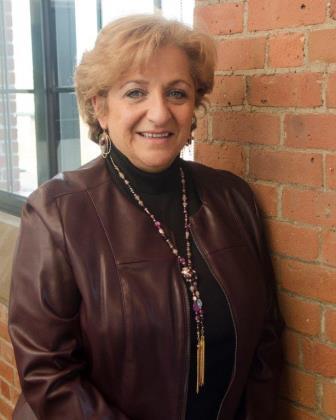Turn to Healthy IDEAS for help with depression
Question: I have a friend who says he feels “hopeless” about the world and life in general. He refuses invitations to get together, seldom gets dressed, and has even stopped watching his favorite sports teams on TV. How can I help?
Answer: Many of us feel we are experiencing difficult times. Few people would turn on today’s news to perk up and feel better. Sometimes we have days when it seems things get to us and inspiration and motivation dry up. But when people have depression, it interferes with their daily life and normal functioning.
October is National Depression and Mental Health Screening Month, when we seek to raise awareness about depression—how this is a common but serious illness that is also highly treatable.
Experts say these are some of its symptoms: trouble falling asleep, staying asleep, or sleeping too much; poor appetite or overeating; feeling sad, anxious, or empty; feeling guilty, worthless, or helpless; losing interest in once-enjoyable activities; thoughts or talk of suicide; difficulty concentrating on activities, such as reading or watching TV; moving or talking slower than normally. Or, by contrast, acting fidgety or restless
Not everyone with depression will exhibit all of these symptoms, but people grieving a recent loss or those who have gone through a recent emotional crisis may experience their symptoms more often. Scientists say depression isn’t caused by a single factor, but most likely results from a combination of genetic, biochemical, environmental, and psychological influences. Depression can affect anyone at any time—from children to older adults. Older adults experiencing depression are often dealing with chronic illness and other losses that occur later in life.
Elder Services’ Healthy Living Center of Excellence is offering a free program, Healthy IDEAS, to aid older adults confronting this issue. Healthy IDEAS (Identifying Depression, Empowering Activities for Seniors) is an evidence-based program that integrates depression awareness and management into the care management services consumers are receiving.
The program improves participants quality of life by:
Screening for symptoms of depression and assessing their severity
Educating older adults and caregivers about depression
Linking older adults to primary care and mental health providers
Empowering older adults to manage their depression symptoms through changing their thinking and behavior—and encouraging them to participate in meaningful activities
Assessing clients’ progress
Mary, an 88-year-old married woman, is one Healthy IDEAS success story. Feeling “less than herself,” she decided to begin the program. When she took an initial depression assessment, her score indicated she was experiencing moderate depression. Mary completed Healthy IDEAS and worked with her care manager toward her goal of tutoring children after school. After completing the program, Mary’s second assessment indicated she had no depression. She says she has never felt better—that Healthy IDEAS bolstered her health, strength, and sense of confidence. Her family has noticed her enhanced energy and mood. Mary participates in far more physical and social activities and has improved her communication with her doctor.
The first step toward obtaining treatment for depression is to visit a physician and obtain a diagnosis. Physicians customarily prescribe a combination of psychotherapy and/or medication. Suggest that your friend seek the advice of a physician. In the meantime, encourage him to exercise, participate in group activities, spend time with friends and relatives, and think positively. If he has access to an Employee Assistance Program, counseling may be an option for him.
If your friend makes any sort of reference to suicide, you should take this very seriously. Help is available to people at risk for suicide—or their family members or friends—at the National Suicide Prevention Lifeline at 800-273-TALK. For more information, visit the National Institute for Mental Health website at www.nimh.nih.gov or https://www.mentalhealth.gov/basics/what-is-mental-health
For more information about the Healthy IDEAS program, please call 978-946-1211 or email hlce@esmv.org
Are you struggling to care for an older adult or having difficulty locating resources? Our experienced staff is available to help. Visit us online at www.ESMV.org for more information. You can also call us at 1-800-892-0890 or email info@esmv.org. Joan Hatem-Roy is the Chief Executive Officer of Elder Services of the Merrimack Valley and North Shore.
Recent Posts
Categories
- Aging Unbound
- Annual Golf Classic
- Ask Joan – Weekly Q and A Column
- Caregiver Events and Workshops
- Caregivers Connect
- Caring for Someone with Alzheimer’s or Dementia
- Changing Aging
- Community
- COVID19
- Digital Access
- For Families and Caregivers
- General
- General Ideas and Support
- Geriatric Support Services
- Grandparents / Kinship Caregivers as Parents
- Health Worker
- Healthy Aging
- Inspiring Aging
- LGBTQ+
- Long Distance Caregiving
- Making Connections
- Medicare Resources
- New to Caregiving
- Nutrition
- PCA
- Program Update
- Resources
- Scam Alert
- Self Care for the Caregiver
- Uncategorized
- Veterans
- Volunteering
- What’s New Out There
- Years of Service
Tags
Affordable housing agespan Alzheimer's awareness caregiver Caregiver Care caregivers Caregiver Support clutter Cognitive community Connection Dementia diabetes education General Caregiving golf golf classic Grandparents health healthy aging hiring Hoarding housing learning Long Distance Medicare meditation memory cafe Memory Loss mental health Music and Memory Nutrition older adults older americans month personal care report elder abuse Resources Self Care SHINE taichi tournament volunteer wellness Yoga

